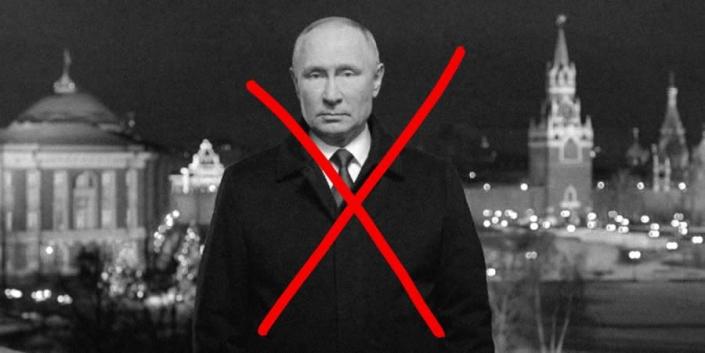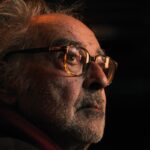
NV looked into this development, and the prospects for such official revolts.
Deputies from two local government bodies, in Moscow and St. Petersburg, last week published official statements calling for the resignation of Russian dictator Vladimir Putin.
On Sept. 12, they were joined by colleagues from other districts of the cities. Observers regard the deputies’ statement as a sensation for modern Russia, where the government actually has no opposition, there is no protest movement, and the vast majority of the population supports the war in Ukraine and approves all the decisions of its president.
Read also: St. Petersburg local councilors who asked Duma to prosecute Putin for treason are summoned to police
It all started when seven deputies from St. Petersburg’s Smolninskoye municipality appealed to the State Duma with the statement that Putin’s decision to invade Ukraine harms the security of the Russian state and its citizens. And the very next day, deputies from Moscow’s Lomonosovsky district published an appeal to the Russian dictator himself, calling on him to resign.
“Your views, your management model are hopelessly outdated and hinder the development of Russia and its human potential,” the appeal reads.
Read also: About the death of Putin and his entire system
According to the Moscow officials, Putin’s aggressive rhetoric and his subordinates has pushed Russia back into the Cold War era, the country lacks stability, its GDP has not doubled, and the minimum wage has not increased to the promised figures. Meanwhile, educated and able-bodied citizens are moving abroad en masse.
The Russian economy suffers not only from emigration, but also from the unavailability of foreign components and the fact that foreign companies and investors are leaving the country, St. Petersburg’s officials add.
Meanwhile, “combat units of the Russian army are destroyed, young able-bodied citizens die and become disabled” in Ukraine, the NATO bloc expands to the east, and Ukraine receives Western arms worth billions of dollars.
“We believe that President Putin’s decision to launch a special military operation harms the security of Russia and its citizens,” St. Petersburg’s officials said.
Ksenia Torstrem, a deputy of St. Petersburg’s Semyonovsky municipal district, this week came out in support of her colleagues. She published an open appeal on Twitter demanding Putin’s resignation and called on other municipal deputies to sign it. In the first hours, more than 20 deputies from 18 different districts signed the document.
Read also: What Russia and Putin’s power are built on – NV interview with UK writer Peter Pomerantsev
Meanwhile, deputies from St. Petersburg’s Smolninskoye municipality were summoned to the police shortly after publishing their statement, where they faced charges on “discrediting” the Russian army.
“The risks for the signatories of such statements are enormous,” says Andrei Kolesnikov, a senior fellow at U.S. think tank Carnegie Endowment for International Peace.
“And this also shows the irritation and fatigue of those who are dissatisfied with Putin.”
According to the expert, although such deputy appeals do not affect the general picture and Putin’s position, they nevertheless indicate war fatigue and possible future changes in public opinion, which, however, will be extremely slow and gradual.
In addition, they carry an important message for Russian society. The deputies made their manifestos public at the last moment of their stay in office – on the eve of local elections in Russia, which took place on Sept. 9-11, says political analyst Ivan Preobrazhensky, who has been living in Europe for several years. However, the status of deputies ensured resonance for this event, he emphasizes.
Read also: Russia withdraws from key town near Kherson, ISW report says
If such a statement had been made by a group of ordinary citizens, hardly anyone would have heard about it. So, in the end, opposition-minded Russians received a signal that they have support.
“In the current situation, many people in Russia feel that they are alone in their anti-war position,” explains Preobrazhensky.
“And such statements provide great moral support to such people.”
The deputies themselves speak about the social significance of their statements.
“We understand this will not have any affect on Putin and he won’t stop the military operation,” Nikita Yuferev, one of seven St. Petersburg’s deputies, told U.S. newspaper The Washington Post.
Read also: Hybrid war from Lenin to Putin
“These appeals are written for people who are still in Russia and whom the propaganda is trying to assure that they are a minority, that there are no people who are against it.”
In addition, the deputies’ statements can now be used during court proceedings both outside Russia and inside the country, because they have an official status and can be accepted as evidence of a crime committed by the authorities, says Preobrazhensky.
He expresses his doubts that calls for Putin’s resignation will likely appear in the “thoroughly cleaned” municipalities of Russia’s largest cities after the elections. However, he suggests that such statements may appear in regions with less powerful police control, as well as those facing conflicts between local and Moscow elites.
But the political scientist does not see a serious prospect for the formation of a national anti-war movement, except in a few years.
“Long before the start of the war, the Russian authorities began to destroy any potential anti-war pacifist organizations, social and even religious (such as Jehovah’s Witnesses) groups,” Preobrazhensky explains.
“So, when the full-scale invasion began on Feb. 24, there was no structure or group in Russia people could unite around.”
He believes now it may take years to create a full-fledged national anti-war movement, adding the Soviet Union saw the movement against the war in Afghanistan only a few years after it began.
Help NV continue reporting on the Russian invasion
Read the original article on The New Voice of Ukraine




